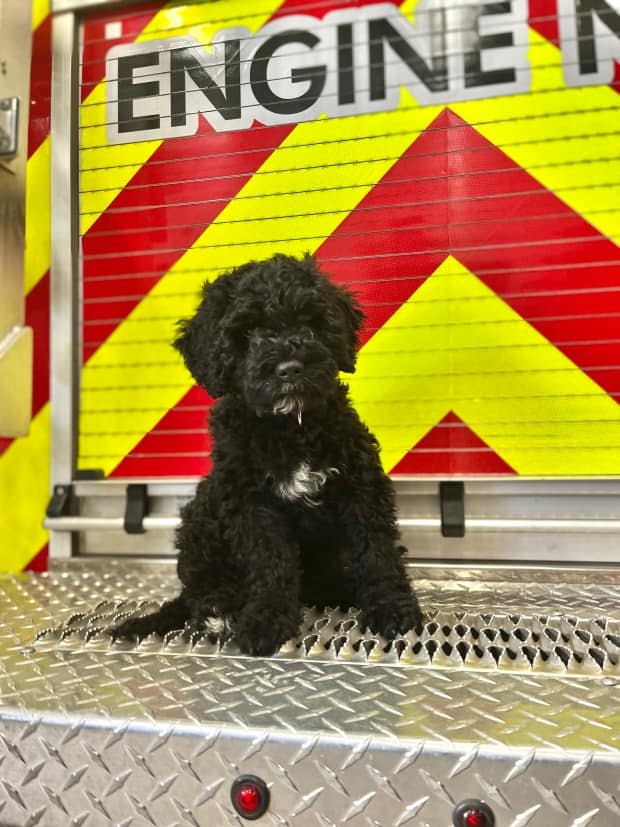Kahnawà:ke fire hall has a furry new first responder

A furry four-legged friend is making a big impact on first responders in Kahnawà:ke, Que.
The Kahnawà:ke Fire Brigade welcomed its newest recruit, a 15-week-old Portuguese water dog, on Jan. 10. Her name is Ononhkwa, which means medicine in Kanien'kéha, the Mohawk language.
"She's brought a lot of excitement to everyone who is in here," said Paramedic Kateri Oesterreich.
"Petting her just takes away that stress level. You can see her atmosphere and presence just changes everyone's mood."
WATCH | First responders get some puppy medicine
While the puppy won't be assisting on any calls, she's there to provide mental health support to the 43 members who provide fire and ambulance services to the Kanien'kehá:ka (Mohawk) community south of Montreal.
Oesterreich said the puppy's ability to sense that someone is going to need some comforting is already developing.
"When you come in. she goes to you," said Oesterreich.
"She greets you, and gives you that opportunity to just ... like there's nothing else going on but this puppy at this moment."

According to the Canadian Centre for Suicide Prevention, first responders are considered to be at greater risk for acute stress disorder (ASD) and post-traumatic stress disorder (PTSD) than other occupations. When it comes to PTSD, first responders experience it at twice the rate of the average Canadian population.
"Anything in this field that can be used to help ensure the mental health and wellbeing of staff and employees is taken care of, is essential," said Oesterreich.
"You can go see a social worker or you can go see psychologist to help you, but if your work environment doesn't allow you to have that down time, feel safe, and feel as though there's a place to release the stresses — it's not a supportive place."

In Kahnawà:ke, the job has the added challenges of working in a small community.
"Every time we hear the pager go off, it could be for our family," said Tanner Phillips, a paramedic and the quality assurance and medical instructor.
"I've treated my parents, my grandparents on multiple occasions, but we know that's the reality of our job and that's why I want to do it. I want to take care of my family, my friends and my community."

Following major incidents or traumatic calls, the fire brigade provides formalized debriefing sessions for its members. But Phillips said having a puppy around is an added benefit, especially after a tough call or long day.
"To have her here, just to come back and see a little happy puppy running around, it helps," said Phillips.
"In any other work atmosphere or office setting, you don't have dogs running around. It's just such a different feeling and it's so comforting and nice to have her."


